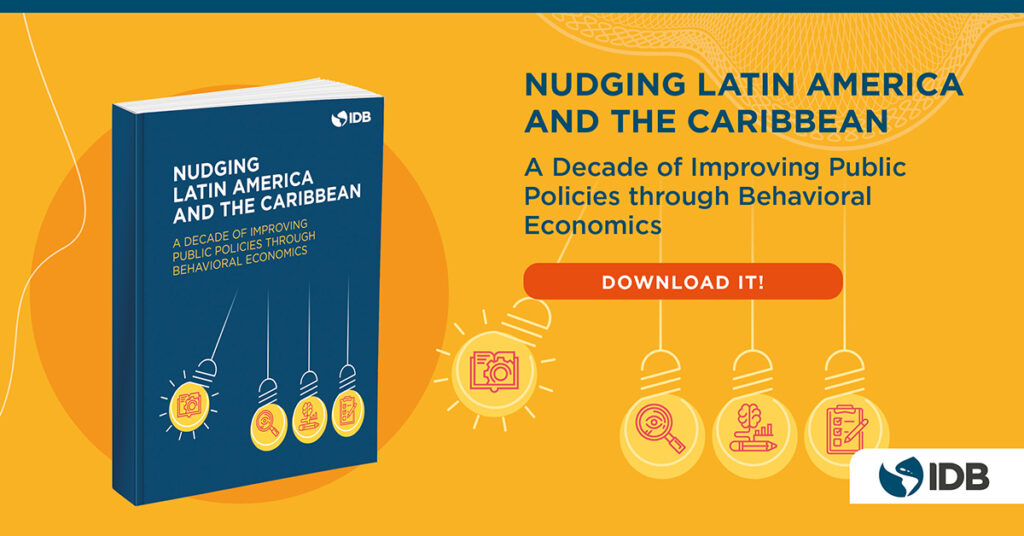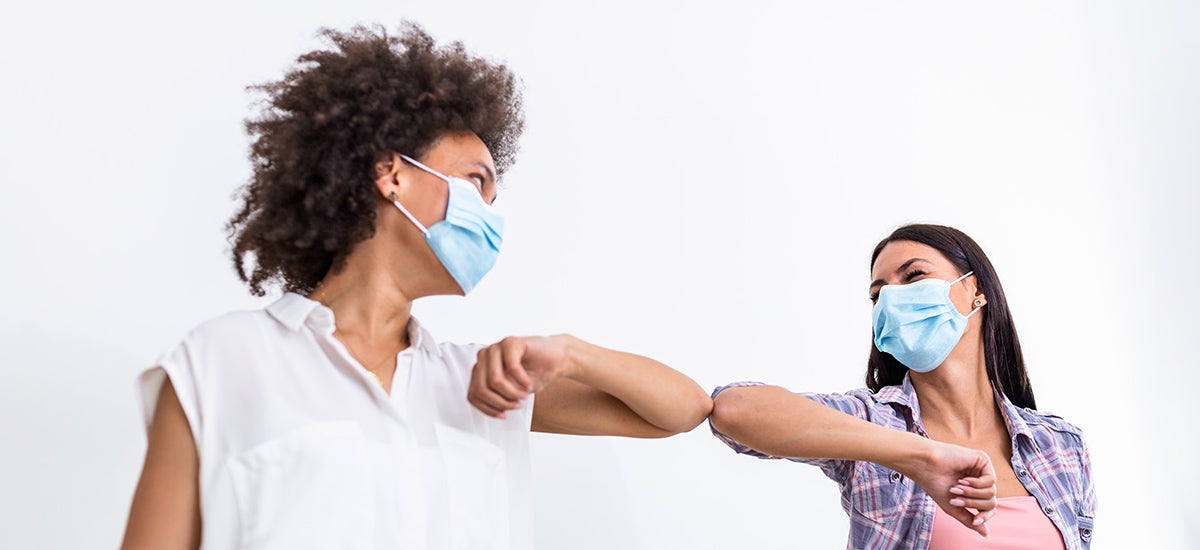
The COVID-19 pandemic has had an immense impact on people around the world, affecting every aspect of their lives, mostly in a negative way. In Latin America and the Caribbean, most governments have made controlling the spread of the new coronavirus a principal goal. Despite investing immense effort and resources in containing transmission, however, they have been unable to achieve a definitive end to the waves of infection.
The problem is neither in the quality or quantity of the information provided on COVID. There have been highly publicized measures to decrease COVID transmission, including campaigns for vaccination and the importance of social distancing, limiting social gatherings to open places, avoiding crowds, wearing masks, washing hands regularly, and avoiding touching one’s eyes, nose and mouth. In most cases, however, knowledge of these measures has not been enough to ensure citizen’s compliance.
Using Behavioral Economics Tools to Prevent Illness
So throughout the pandemic, the Inter-American Development Bank (IDB) has used the tools of behavioral economics to understand why people, despite fearing infection, fail to comply with preventive measures and to design interventions to help them from getting sick. The work described in the IDB Behavioral Economics Group’s most recent publication, “Nudging Latin America and the Caribbean: A Decade of Improving Public Policies through Behavioral Economics,” serves as a potential road map for increasing voluntary compliance with public health guidelines on COVID.
Behavioral economics draws on the tools of psychology, economics, and other social sciences to understand human behavior, predict it, and change it. In particular, through “small nudges” or changes in choice architecture—”the context in which people make decisions”—it helps generate systematic and predictable transformations in people’s behavior. In effect, small nudges correct cognitive biases and barriers that negatively affect decision making, helping people to make wiser and more beneficial choices.
An Experiment in Mexico
The IDB has used behavioral economics to provide support in the fight against COVID in several countries, including Mexico, which, at the time of the intervention, was characterized by a lack of compliance with preventive behaviors such as social distancing. Despite survey results showing high approval of preventative measures established by public health authorities and a high level of knowledge of transmission risks from activities such as meeting in closed spaces, visits to friends’ and relatives’ houses were still common.
The IDB designed an intervention to examine what type of social norms were causing people to flout these public health recommendations. It used a vignette to describe a fictitious character (Mariana) who receives an invitation to attend a friend’s birthday party along with 20 other guests. The vignette varied according to four conditions incorporating expectations based on prescriptive social norms—e.g., most people think everyone should comply with social distancing—and descriptive social norms—e.g., no one actually does—.
The sentence giving rise to the four conditions and generating the variations in the vignette is as follows: “Mariana knows that her friends think [it is/isn’t] right to attend, [and/but] [only a few/most of them] will show up.”
After being randomly exposed to one of Mariana’s different conditions, participants answered questions about whether Mariana would attend the birthday and whether she should attend. Results indicated that social norms affected people’s beliefs about whether Mariana would attend the party. Compared to the baseline category (attending is inappropriate and few friends will go), the conditions “attending is inappropriate and many friends will go,” “attending is appropriate and few friends will go,” and “attending is appropriate and many friends will go” increased, on average, the belief that Mariana would attend the birthday party by about 7 percentage points, which is equivalent to a 28% increase in the probability of attendance observed in the baseline category. No effect was observed on beliefs about whether Mariana “should” attend the party.
The results suggest that information campaigns that intend to increase social distancing behavior in the fight against COVID may be more successful if they are based on both empirical and normative expectations. This study shows that compliance with preventive behavior is more likely when Mariana: i) expects few of her friends to attend, and ii) believes her friends would not approve of her attending. If either of these conditions fails to hold, predicted attendance rises considerably.
A Cost-Effective Tool Against COVID-19 and Other Public Policy Challenges
Behavioral economics tools can be among the most cost-effective solutions to important public policy challenges. And you can learn about both this study and 37 other interventions that cover areas ranging from education and gender to health, social security, taxation, public administration, and small and medium enterprise promotion in our new report.

Publisher: Source link











